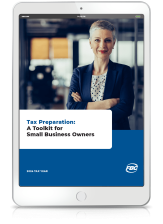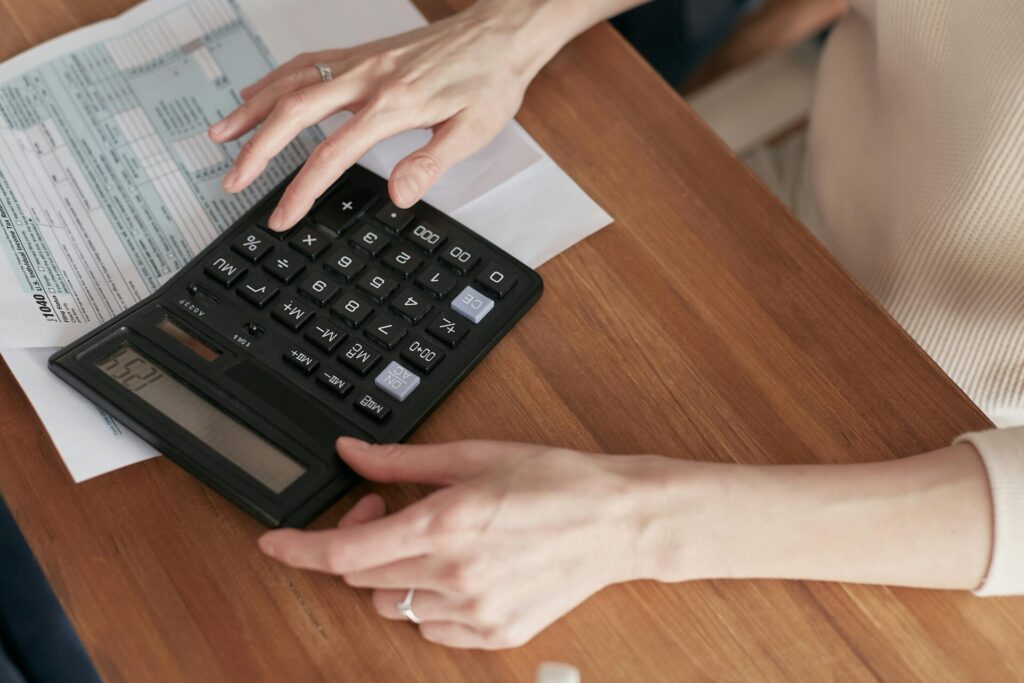Contents
- What qualifies as business use of a motor vehicle?
- What is a mileage log or logbook?
- How do I keep a mileage log?
- Why do I need to keep a mileage log?
- How do I calculate and deduct vehicle expenses?
- What records do I need besides a logbook? How long should I keep them?
- What if I’ve purchased or leased a vehicle?
- Free Download: Small Business Tax Strategies: A Complete Owner's Manual
- Every year we save our Members over $42 million. We can help you too.
Last updated: Jan. 27, 2022
A big perk of using your personal vehicle for business when you're self-employed is writing off your motor vehicle expenses.
But if you’re doing this without keeping a mileage log, the CRA could reject your claims for these expenses.
The good news is that by following our advice, you can avoid CRA scrutiny and still lower your tax bill.
What qualifies as business use of a motor vehicle?
Simply put, if you are self-employed and use your personal vehicle to earn business income, the CRA considers this to be business use of a motor vehicle.
This entitles you to deduct a portion of vehicle expenses such as fuel and maintenance costs based on your mileage. However, the CRA is very specific about what vehicle kilometers count and don’t count.
For example, driving from your home to your place of work is considered personal travel (or a commute) and does not qualify as business use of your personal vehicle.
The CRA has stated that ONLY in the following situations, driving to or from home would qualify as business use of your vehicle:
- Travel from your home to a client’s place of business (or other location to attend a business meeting) and travel directly back home
- Travel from your home to a client’s place of business (or other location to attend a business meeting) and back to your office/place of work
- Travel from a client’s place of business (or other location to attend a business meeting) and back home
If you run a farm, business use of vehicle will also include trips to pick up parts or farm supplies, and to deliver grain. If you did not live on your farm, the travel between the farm and your home is not considered business travel.
In fishing, business use of vehicle will also include trips to pick up parts or boat supplies, and to deliver fish to markets. It also includes driving to and from the fishing boat if your home is your main place of business.
The devil is in the details which is why it’s so critical to keep a detailed record of your mileage in a logbook.
What is a mileage log or logbook?
A mileage log, also known as a logbook, is a record of your business travel for the entire year.
If you are self-employed and want to claim expenses on a vehicle used for business, you must keep a detailed logbook record.
It should include:
- The date
- Your starting point
- Your destination
- The purpose of your trip
- Your starting mileage
- Your ending mileage
- Total kilometres driven on the trip
How do I keep a mileage log?
There are lots of options on how to keep a log: you can go old school with a pen and paper; kick it up a notch by making your own spreadsheet; or even download a mileage app to your phone.
The CRA doesn’t care how you keep your record – they just want a detailed one so they can verify your expense claims.
When it comes to logbooks, the more information, the better. If it ever comes down to an audit, the CRA will likely ask for your logbook and pour through it. As time marches on, it’s all too easy to forget important details about where you went and why.
Ease of use is just one reason so many people choose to go digital with a mileage app.
Using GPS technology, these apps record your mileage as you travel. When the trip is over, you simply classify the trip as personal or business. At the end of the year, you simply download a report and keep for your records.
Remember, while most mileage tracking apps use GPS to record your vehicle in motion, they’re not 100% accurate. It’s always a good idea to keep a separate record of your odometer with any pertinent notes and receipts as back up.
Keeping track of your mileage needs to become another driving habit, as natural as doing up your seat belt or shoulder-checking before changing lanes.
Why do I need to keep a mileage log?
As stated above, if you can’t provide a record of your mileage, the CRA will disallow your vehicle expenses as a tax deduction. Ultimately, this translates to you paying more taxes and making less money.
When people don’t have a logbook, they tend to pull numbers out of thin air and take their best guess. But you can’t guess your way out an audit; the CRA will always expect concrete and detailed proof.
From our experience, FBC Tax Members are often surprised at how much more they’re able to claim just by keeping better mileage records. It might only be an extra 5%, but that that’s more money in your pocket.
How do I calculate and deduct vehicle expenses?
For each tax year – from January 1 to December 31 – you must record your total kilometres from the year, and the kilometres you drove while earning business income. Remember:
- Don’t forget to record your odometer reading at the beginning of the tax year, and at the end of the tax year.
- If you change vehicles, note the dates of the change and the odometer reading for the new or leased vehicle.
When you go to file your taxes, you will use your logbook to calculate what percentage of your vehicle was used to earn business income. You will then use this percentage to figure out how much you can deduct in order to lower your tax bill.
Let’s look at an example:
- Your odometer reading at the end of the year was 40,000 km
- Thanks to your logbook, you know 32,000 km was for business use
- Divide 32,000/40,000 to find out what percentage of the time the car was used to earn business income
- This is 80%, which means you can deduct 80% of your eligible vehicle expenses as business expenses
To calculate your vehicle expense deduction, use the same percentage:
- Let’s say your vehicle expenses were $6,000 for the year
- If you multiply $6,000 by 80%, you get $4800, which means you can deduct $4800 of your vehicle expenses on your tax return
The following expenses are eligible when using your vehicle for business:
- Licence and registration fees
- Fuel and oil costs
- Insurance
- Interest on money borrowed to buy a motor vehicle
- Maintenance and repairs
- Leasing cost
You can also deduct the full amount of the following:
- Parking fees related to your business activities
- Supplementary business insurance for your motor vehicle
If you use more than one vehicle for your business, keep a separate record for each one that shows the total kilometres driven in one year and the business kilometres driven, and all the associated expenses with each vehicle.
You’ll have to calculate the expenses separately for each vehicle.
What records do I need besides a logbook? How long should I keep them?
Aside from a copy of your logbook for the CRA, keep all your receipts for automobile expense deductions. Again, keeping your receipts organized is key to protecting yourself in the case of an audit.
Remember, anything pertaining to the vehicle is an eligible expense if it’s a business vehicle. Don’t lose receipts because if you do, you lose out on deductions.
We always recommend keeping your logbooks and associated receipts for 7 years (6 years after your last Notice of Assessment). This is the gold standard for audit protection when it comes to tax and accounting.
This way, if the CRA ever does challenge your automobile expenses, or reassess you after you’ve filed, you will have all the proof you need.
Click here to read 7 simple ways to organize your receipts.
What if I’ve purchased or leased a vehicle?
If you’ve purchased a vehicle, you can claim the cost of the vehicle itself over time through the Capital Cost Allowance (CCA).
One thing to note is that the kind of vehicle you own can affect the expenses you can deduct. The CRA has different rules (particularly as they relate to Capital Cost Allowance) based on its definition of “motor vehicles”, “passenger vehicles”, “zero-emission passenger vehicles” and “zero-emission vehicles.”
There are also rules that apply if you jointly own or lease your vehicle.
As always, your best bet is to talk to a tax professional to ensure you’re properly applying your deductions and CCAs.
Free Download: Small Business Tax Strategies: A Complete Owner's Manual
Many small business owners wait until spring to start thinking about their taxes, but this simple act of waiting could cost them thousands.
With Small Business Tax Strategies: A Complete Owner's Manual, you'll learn what key tax information and documents you need to meet Canada's fast-approaching tax filing deadline.
Consider this toolkit your roadmap to help you get organized, reduce your tax burden, and keep more money in your pocket.
Every year we save our Members over $42 million. We can help you too.
Every day, an FBC Membership will bring your business value—including tax preparation, tax planning, financial and estate planning, audit representation, bookkeeping, payroll and much more.
We work around your schedule. Whether it’s on-the-go, at your job site, or your kitchen table, we are where you need us to be.
With more than 70 years of experience, we understand the needs of small business owners.
We know taxes. We can help.
Take 15-minutes to connect with us. Let’s see if we’re a good fit for you and your business. Book online or call us at 1-800-265-1002.







